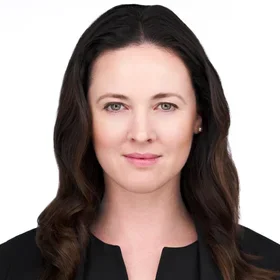By Meryl Selig ('23SPS, Bioethics)
When I started college, I thought I wanted to be a veterinarian. I had a love of animals and a strong interest in working in health care, but freshman chemistry sent me another message: Better stick to social sciences. I had always been interested in people, societies, economics, and how attitudes and behavior are influenced by social structures, so I switched to anthropology and pursued a career in marketing and communications. That said, I always felt drawn to health care.
When I retired and moved to the Bay Area, I decided to venture toward a health-care setting. For more than 10 years, I volunteered in the hospice unit at the Palo Alto VA Medical Center. During that time, I also volunteered as a patient navigator at the Stanford Medical Center’s Cancer Center, worked on a task force to establish an outpatient palliative-care clinic at the Center, and joined the Center’s patient advisory council.
Then my closest friend and neighbor began declining during a siege of gynecologic cancer. As I watched and listened to her, I saw many things that just “didn’t seem right” in terms of her care, as well as things that I knew could be addressed and fixed.
This was one of the reasons I then joined the Cancer Council at Stanford’s School of Medicine, a development board with generous, compassionate people who are continually learning about ways to improve medical care, fund research, and help a wider group of patients. I was relentless about raising awareness of issues that were negatively impacting patients and families. This work eventually led me to the discipline of bioethics.
I decided to pursue a master’s at Columbia School of Professional Studies’ Bioethics program. The program’s curriculum, events, and engaging discussions with classmates and professors gave me a whole new perspective on health care and beyond. I’ve come to realize that bioethics extends into almost limitless areas of life, both philosophically and practically.
Bioethics is a confluence of my diverse interests. I care about people. I am an observer of “how things work” as they relate to people’s lives and perceptions. Bioethics, to me, encompasses aspects of our lives beyond the clinical, medical, and research spheres. Studying and applying ethics requires us to observe, reflect, think, and act in accordance with principles that seek to help people and communities thrive, reduce harm to others, and help provide better access to care and well-being.
In the program's courses, I read a wider range of articles and books than ever before. I developed a deeper interest in specific issues relating to medical care, pharma, the U.S. health-care system, and how bioethics connects to a range of societal issues, including population migration, human rights, and tech and AI as they relate to the medical field.
The program also highlighted the intricate relationship between law and ethics. In courses with clinical studies, we examined how we might have decided specific cases. Similarly, we learned about landmark legal cases in bioethics, which were fascinating to study, discuss, and apply to other challenges.
My professional career ended 20 years ago, but I bring the lessons from the program to every activity, committee, and organization with which I engage. The education I received enabled me to take my work with patients and health-care providers to the next level.
Although my work in bioethics began with an interest in the health-care struggles of others, I am now the patient. I have been confronted with an illness that involves repeated hospitalizations and long treatments. Although it’s challenging, I find it amusing to see myself as my own case study. More significantly, I feel empowered to speak up and speak out about inequities and advocate for improvements to both clinical and inpatient experiences. It is a gift that goes beyond a diploma.
About the Program
Columbia University’s Master of Science in Bioethics grounds students in interdisciplinary approaches and models to address pressing bioethical challenges such as stem cell research and health-care reform. The program prepares students to act as responsible and responsive leaders in this new and ever-growing field. It also includes a concentration in global bioethics—the first of its kind in the U.S. Columbia’s Bioethics program offers a range of degrees and courses.


